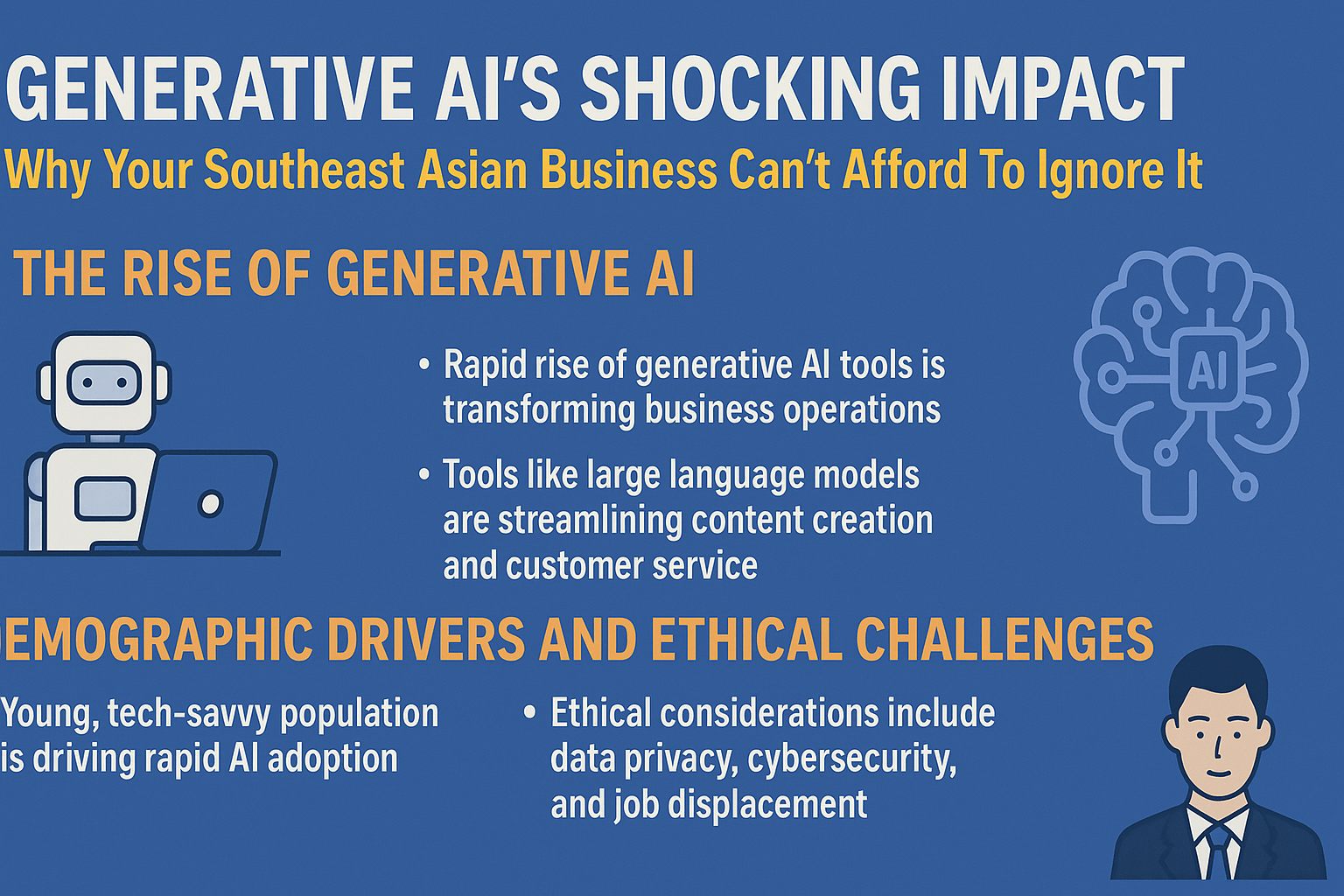The digital tide is rising, and in Southeast Asia, it’s creating a tidal wave of change that’s completely reshaping how businesses operate. As the region becomes a fertile ground for both technological innovation and adoption, new trends are emerging that challenge traditional business models and reward those who are agile enough to embrace them. From the smallest startups to the biggest corporations, the message is clear: adapt or get left behind.

The Rise of Generative AI
At the heart of this disruption is artificial intelligence (AI), specifically the rapid rise of generative AI. Gone are the days when AI was confined to complex data analysis. Today, tools like large language models are becoming creative collaborators and virtual assistants, streamlining everything from content creation to customer service. Businesses are finding that by integrating these tools, they can dramatically boost productivity and offer hyper-personalized customer experiences, something that was once only possible for companies with vast resources. This shift is lowering the barrier to entry, allowing nimble startups to innovate at a breathtaking pace.
A Convergence of Technologies
But the story of disruption goes far beyond just AI. The convergence of multiple technologies is what’s truly creating a seismic shift. For instance, the expansion of cloud computing and next-generation connectivity like 5G are the backbones that make widespread AI adoption possible. They provide the computational power and speed needed to run these resource-intensive applications. We’re also seeing the emergence of autonomous systems—physical robots and digital agents that can perform tasks with minimal human intervention. This is transforming industries like manufacturing and logistics, where automation is leading to unprecedented efficiency and precision.
Demographic Drivers and Ethical Challenges
The unique demographic of Southeast Asia, with its young, digitally-fluent population, makes it a critical player in this transformation. Consumers in the region are not just passive users; they are enthusiastic adopters of new technologies, which in turn drives businesses to innovate. This dynamic is particularly evident in the growth of the digital economy, which is projected to become a multi-trillion dollar market by 2030. For businesses, this means focusing on creating seamless, omni-channel experiences that cater to a consumer base that moves fluidly between online and offline worlds.
However, this explosive growth isn’t without its challenges. The rapid deployment of these powerful technologies necessitates a serious conversation about ethics and governance. Issues like data privacy, cybersecurity, and the potential for job displacement are top of mind for business leaders and policymakers alike. The most successful organizations won’t just be the ones that adopt the newest technology; they’ll be the ones that implement it responsibly, building trust with their customers and employees by creating robust governance frameworks around their use of AI and other disruptive tools. In this new era, innovation and responsibility are two sides of the same coin, and mastering both is the key to lasting success.
